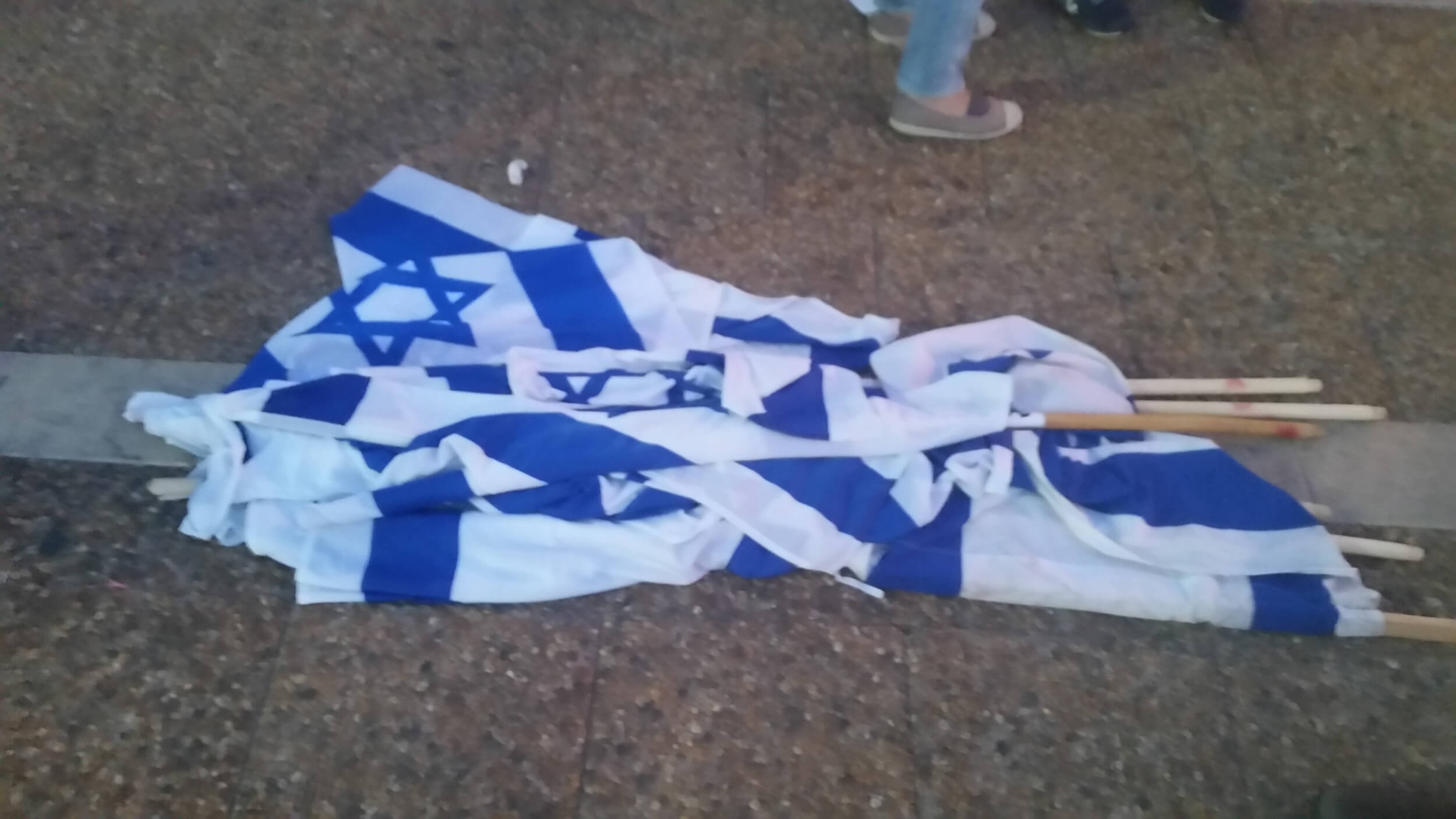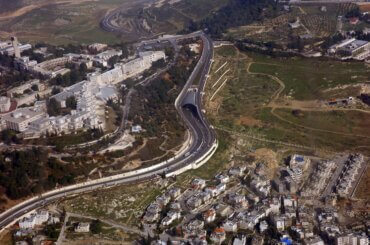This is part twenty-seven of Marc H. Ellis’s “Exile and the Prophetic” feature for Mondoweiss. To read the entire series visit the archive page.
Back to back beautiful beach days, morning and late afternoon, sunny but mild, low tide, then dark clouds gathering, followed by a short rain. Amazing.
Then crossing the email wire, our intrepid decolonizer, now in Rwanda, sends out her “lovely afternoon” photo greeting of her visit to the Rwandan genocide memorial in Kilgali. Skulls and more skulls.
Lovely afternoon – skulls. Contrasts are instructive.
There are plenty of genocide artifacts in the world. Probably always were. Now they are collected. A genocide industry has sprung up, with websites and other modern paraphernalia. Like the Holocaust museum in Washington, D. C. with the personally assigned passage ID’s of the martyred.
The idea is to remove the abstraction – as in, six million slaughtered – but for me just the opposite happens. I feel like an idiot carrying this manufactured industry ticket in my hand. Once my admission is assured should I tuck her in my pocket? Or later, when I empty my pockets should I put her in a draw for safekeeping or toss her in the garbage with my other museum accumulations?
And now – and for some time – Rwanda’s military is in the Congo. Rwanda also seems to have copied the Jewish thinking behind the Holocaust museum – arm yourself to the teeth and go wherever you want under the cover of past genocide.
What is genocide worth if you’re not going to use it to augment your power without accountability?
So the Jewish/Israeli model exported to Rwanda. Where did Jews/Israel get it? Surely, there must be Israeli arms sales cooperation with Rwanda – has to be.
It turns out there is a difference between Israel and Rwanda, since American military aid has been cut off because of this latest interference in the Congo. I doubt Rwanda gets anything near the three plus billion dollar aid package Israel gets each year. But Israel may agree to take up the military arms slack. They have done this everywhere the US has been or will be in the future.
I suppose we can call these dealings Post-Genocide pacts. Or, on the British side as you shall see, Colonial Services agreements. Just speculating. A cursory web search doesn’t bring up anything on Israel-Rwanda military ties. On the Israeli-Apartheid South Africa watch, however, there is no dearth of information.
But notice, too, the bland description on the Rwandan’s memorial center’s website. As if the Rwandan genocide was simply a mistake that was committed because of ignorance. Notice as well the United Kingdom and other “world” donors. After all these years, the colonial remains.
The genocide industry is based in the West, even if the West has specialized in setting genocide in motion.
Well, a colonial legacy is a colonial opportunity in a (un)changing world. Who says there aren’t genocide second acts in history?
Here’s the description of the Kigali Memorial Center, with options to donate:
The Centre in Kigali was created by a joint partnership of the Kigali City Council and the UK-based Aegis Trust. It contains a permanent exhibition of the Rwandan genocide and an exhibition of other genocides around the world.
The Kigali Memorial Centre is maintained by goodwill donations left by its visitors.
If you would like to make a donation online please Click Here!Rwanda is a beautiful country of rolling hills, mountains and grassy lowlands. In French, it has been named ‘Pays des Mille Collines’ meaning ‘Country of a Thousand Hills’. Its beautiful Lake Kivu has one of the most spectacular shorelines in the world.
One of the principle reasons for the Centre’s existence is to provided educational facilities. These are for a younger generation of Rwandan children some of whom may not remember the genocide, but whose lives are profoundly affected by it.
The creation of the Kigali Memorial Centre was funded by a number of donors worldwide.
If I might make a suggestion to the Brandeis Peace Building, I think the description of mass death in Rwanda is sanitized and depoliticized enough on the website to be on your Peace Building approved list. If we check the no-no’s – political rivalry, speaking about armed might in revenge or calling attention to the misdeeds done in the name of genocide, everything looks good. No offense will be intended or given.
Now from Trip Advisor, a thumbs-up review, one among many:
Take plenty of time at this moving memorial. Done incredibly well, and prepare to cry at the Children’s Memorial. An amazing centre which manages to evoke the horror of the genocide while still building hope and commitment, rather than anger and retribution, for the future. Do not miss this.
I don’t want to be irreverent. I remember an article I read soon after the genocide. The writer asked the Rwandan Minister of Justice about the possibility of punishment for the murderers. Since so many Rwandans murdered how could the country mete out justice? His response: “After genocide there is no justice.”
Unless museums are justice. Meaning memory funded by the state. Memory visited. Memory toured. Justice for whom? The victims the museum is about or the victims who will be sanctioned by their memory?
Linking genocides. Avoiding too much particularity, the Kilgali Memorial Centre also mentions other genocides. As does the Holocaust museum in Washington. But, please, if you don’t want to lose your “authentic” genocide club card don’t call the Holocaust, genocide or the Rwandan genocide, Holocaust. There is an (un)official, though thoroughly enforced, Holocaust/genocide separation. There is even a carefully delineated Holocaust/genocide language code, a dictionary of Holocaust/genocide etiquette. Mind your P’s and Q’s.
It used to be that atrocity, by whatever name and most often without one, wasn’t officially memorialized. It seems that the institutions of the state powerful enough to create narrative and museum’s spaces for genocide are the same ones that have/are or will sponsor genocide and its precursors, atrocity and ethnic cleansing.
The Holocaust/genocide museum industry public relations folks like the state to keep the watch monitor at the lower levels of atrocity and ethnic cleaning (without naming it as such, of course) so the Big Theme can remain unscathed. As our Trip Advisor recommender writes, the memorial in Kilgali “manages to evoke the horror of the genocide while still building hope and commitment, rather than anger and retribution, for the future.”
Hope for whom? Is she so sure that anger and retribution can’t be carried out while still pausing for silence in the presence of the musuemified dead?
Being museumified, the victims don’t have a word, do they? Which way their hope and commitment would go, we don’t know. We’re probably afraid to find out. Rather, let the empowered state poll itself and decide how to define anger and retribution.
Holocaust and genocide museums are many things to many people. I do wonder if the museums themselves enshrine violence as part of our future. Perhaps not, but I safely predict that Holocaust/genocide museums are a growth industry. Their future looks bright.
“Do not miss this.” I’m sure that’s true. One day I need to take a genocide tour. I’ve already done parts of the Holocaust memorial tour, which takes a lot of time by the way. At least in Europe and America, they’re around every corner, just like Jewish power.


I think you wrote a good article critical of the situation in Rwanda. I am no expert, but I highly doubt the official story. For example: http://dissidentvoice.org/2009/04/the-rwanda-genocide-fabrications
Prof. Ellis,
You do a good job pointing to the misunderstanding or abuse of the lessons of genocide:
Here, you point to how memorializing the Rwandan genocide was made to appear commercialized, how it was used as an excuse to build up a military, and how there is no real explanation for why it happened.
In the Old Testament, however, the lesson appears to be that conquering the people was attributed to the people’s failure to follow the Lord, as Deuteronomy 8 says:
Deuteronomy 28 goes into more detail and Hosea 5-6 describe the troubles of the people until their return to God. So rather than being an opportunity to build up a military and conquer others as revenge, the main lesson seems to be that it is an opportunity to return to right conduct and belief.
A counterargument could be that the attackers’ thinking was itself nonsensical, so how can there be a rational moral lesson. And I think that one can come away with stronger teachings about morality or human rights, for example.
This also reminds me of Zech. 13 and the broader context of your writing on the prophets. You see, if one is to understand that all the rejected prophets are bad in Zech.13, then how is it that the passage then describes the destruction of “2 parts” of the people, and that it is afterwards that the people finally call to God? To me, these things go against the rejection.
Gee, W.Jones, can you tell me why I see no chapter/verse numbers in Ellis’ posts, and your comments are full of it?